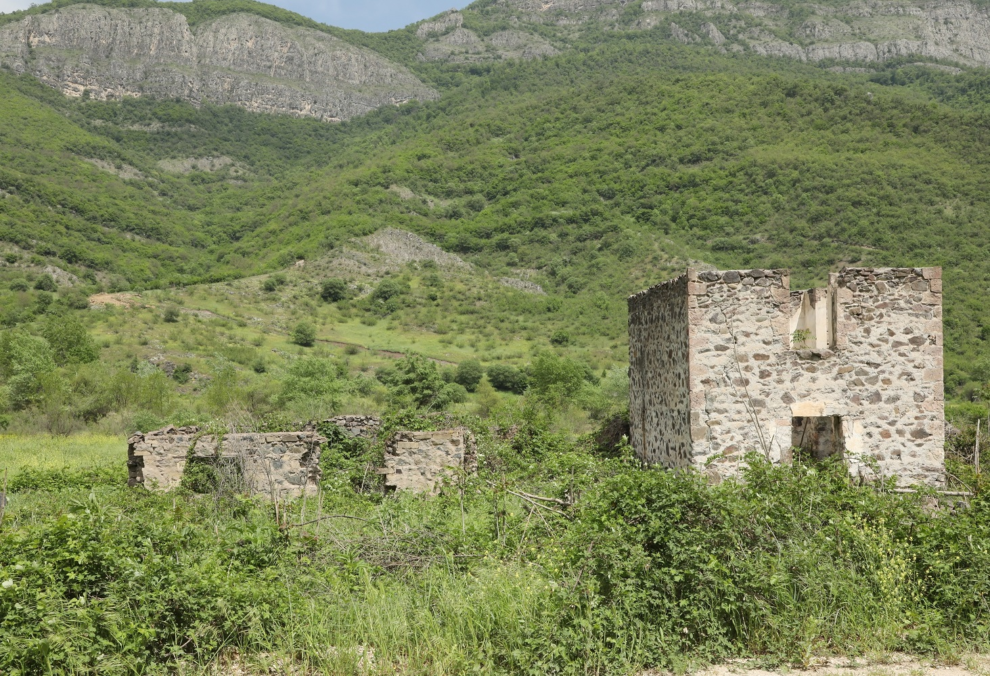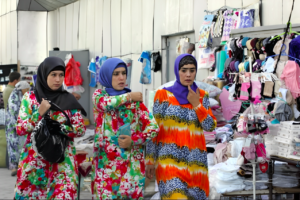Azerbaijan has allocated additional funds from next year’s state budget to expedite the reconstruction and restoration of the liberated lands.
Chamber of Accounts data showed that AZN 3.825 billion, or $2.25 billion, will be channelled to the reconstruction and restoration projects in the liberated Karabakh (Garabagh) and East Zangezur regions in 2024.
Infrastructure projects, including those for the reconstruction and restoration of the transport grids, residential areas, water and waste management systems, municipal infrastructure, and others will absorb AZN 3.3 billion ($1.95 billion), according to local media reports.
Around AZN 51 million ($30 million) will be transferred to the Mine Action Agency for facilitating the demining activities, while AZN 34.5 million ($20.2 million) will be used for social projects related to education, healthcare, culture and others.
The estimated total funds allocated for the reconstruction and restoration of the liberated lands between 2021 and 2026 is AZN 22.4 billion ($13 billion). The 2023 state budget allocated AZN 5.26 billion, or $3.1 billion, for the ongoing and new reconstruction projects in the Karabakh and East Zangezur regions. However, President Ilham Aliyev confirmed that by the end of this year, the total investments would reach AZN 12 billion, or $7 billion.
In 2022, AZN 4.315 billion, or $2.5 billion, was invested in the revival of the liberated lands. In 2021, the total financial allocations for this purpose stood at AZN 2.178 billion ($1.28 billion).
Over the decades, Armenia and Azerbaijan had been locked in an armed conflict over the latter’s Karabakh (Garabagh) region. Following the Soviet Union’s dissolution in 1991, Armenia launched a military campaign against Azerbaijan. The war ended in a ceasefire in 1994 and saw Armenia forcibly occupying 20 percent of Azerbaijan’s internationally recognized territories. Over 30,000 Azerbaijanis were killed, 3,890 went missing, and one million were expelled from these lands in a brutal ethnic cleansing campaign carried out by Armenia.
On September 27, 2020, the Armenia-Azerbaijan conflict took a violent turn when Armenia’s forces deployed in occupied Azerbaijani lands shelled military positions and civilian settlements of Azerbaijan. During the 44 days of the war, the Azerbaijani forces liberated over 300 settlements, including the cities of Jabrayil, Fuzuli, Zangilan, Gubadli, and Shusha, from a nearly 30-year-long illegal Armenian occupation. The war ended with the signing of a tripartite statement by Armenia, Azerbaijan and Russia on November 10, 2020. Under the agreement, Armenia also returned the occupied Aghdam, Kalbajar, and Lachin districts to Azerbaijan.
Since 2020, dozens of projects have been completed, while many others are in the pipeline.
Residential complexes have been built in Fuzuli and Zangilan, and houses restored in Lachin and Tartar. High-voltage power lines, hydropower stations have been restored or built in the region. TV and radio broadcasts were relaunched. Mobile and internet telecommunication operators added these areas to their network coverage map.
The State Agency of Azerbaijan Automobile Roads (AAYDA) has rolled out at least 13 projects for laying a total of 725 kilometers of new roads and highways, as well as restoring the existing routes in the liberated lands.
Two new airports came online in the liberated Azerbaijani lands in 2021 and 2022 with the third airfield set to start operations in 2024.
The revival of the liberated territories aims to ensure faster return of the former IDPs to their homeland.
Since 2022, hundreds of the former IDPs have been relocated from their temporary residences in various parts of Azerbaijan to the districts of Zangilan, Fuzuli, and Lachin, as well as the village of Talysh in the Tartar district. By the end of 2023, Lachin will be further repopulated and 2,000 people will be resettled in Fuzuli.
According to the government’s plans, a total of 2,000 families or 10,000 people are expected to return to their permanent residences by the end of 2023.
The completion of the first stage of the Great Return Program by late 2026 will allow 34,500 families, or 140,000 people, back to the liberated territories in the Karabakh and East Zangezur regions, where 34,500 apartments and private houses will be built.
Source : Caspiannews











